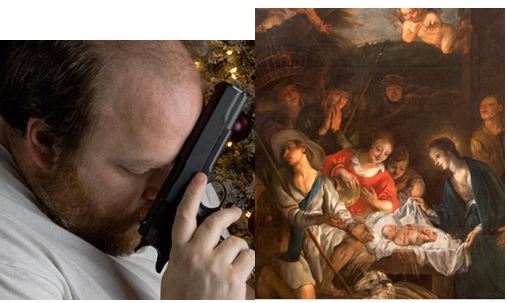 Misconceptions about Christmas: Christmas is a time for friends, family, cheer, giving, and general annoyance. After centuries of history, a lot of traditions have grown up around Christmas, and a lot of misconceptions have, too. They’re repeated year after year, and we’re going to clear some of them up.
Misconceptions about Christmas: Christmas is a time for friends, family, cheer, giving, and general annoyance. After centuries of history, a lot of traditions have grown up around Christmas, and a lot of misconceptions have, too. They’re repeated year after year, and we’re going to clear some of them up.
Christmas Spread Along With Christianity
The oft-repeated story is that as Christianity spread, it engulfed the ancient pagan ways and holidays, converting but letting people keep their celebrations and their holidays. The winter solstice became a celebration of the birth of Christ.
That’s only half true. Christianity existed for hundreds of years before the idea of celebrating Christ’s birth occurred to anyone. Early Christian writers in Rome made their stance on celebrating birthdays quite clear—it was a disgusting, despicable, pagan thing to do. It was considered much more important to celebrate a person’s death rather than their birth. That’s one reason that Easter and Good Friday came first, along with the feasts of the saints.
The first reference to the date of the birth of Christ came in the year 200. An Egyptian text listed it as May 20. Other contemporary texts give other dates, but they agree that it was sometime in April or May. Only in the middle of the fourth century did a Roman almanac give Christ a December 25 birthday based on interpretation of a gospel, and the celebration took a bit longer than that to catch on.
By the 17th century, Christmas was in a form that would at least be of passing familiarity today. There were presents, carols, plays, and mummers, and lords would open their doors to the poor in a show of generosity. But this was all absolutely forbidden by the most religious Christians. The Puritans didn’t just forbid the celebration because it wasn’t as somber and religious as they hoped—they called it downright heretical, citing (correctly) that there was no biblical precedent for it. And they even won. Christmas was canceled in 1647.





































Discussion about this post